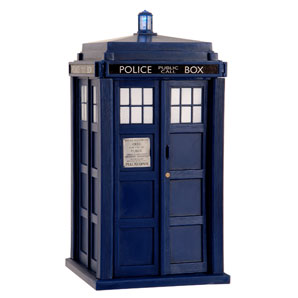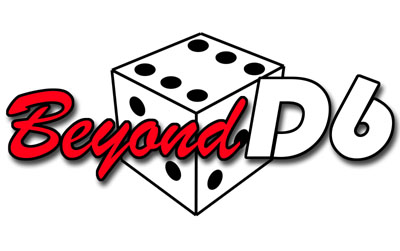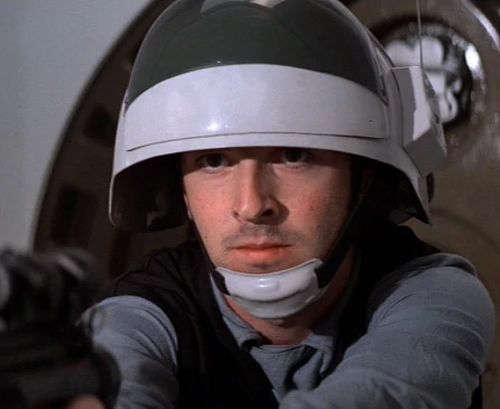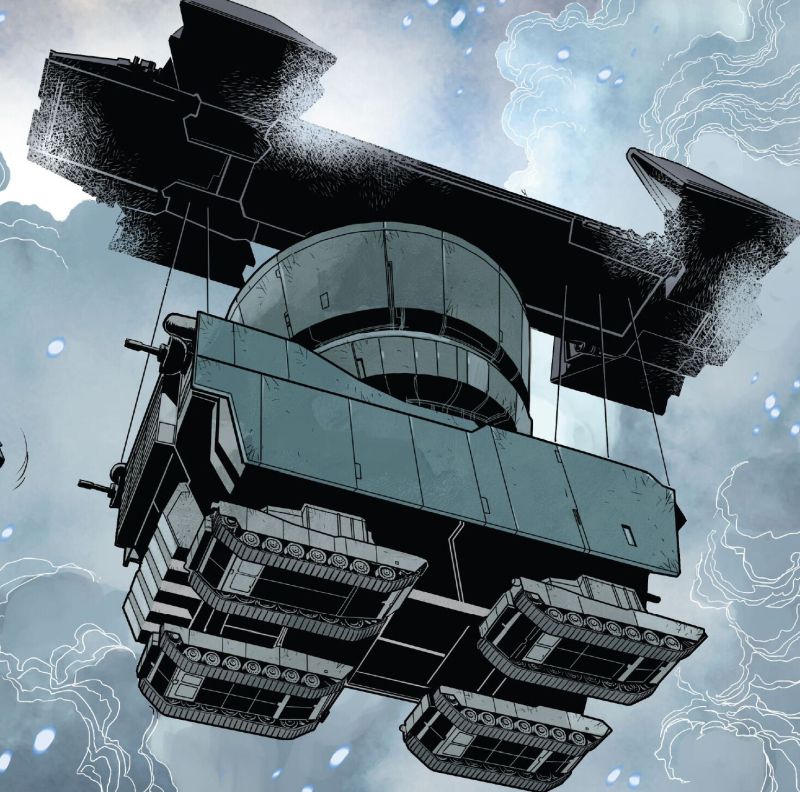
Doctor Who
I've been planning to write an editorial about Doctor Who for quite some time, but now seems more apt a time than ever, with both the recent sad deaths of Nicolas Courtney and Elisabeth Sladen, and a new series starting this weekend prompting me to write this.
Where to start? Well I suppose since many readers of this site are not British, they may not be aware of what I'm going to talk about, so I guess I'd better explain a little. Doctor Who is the worlds longest running science fiction series, that first was broadcast on 23rd of November 1963 (yes the day after President John F Kennedy was killed). It is mainly aimed at a child/youth audience, and chronicles the adventures of an alien time traveller calling himself "The Doctor".
The Doctor is a member of an alien species called the Time Lords, the first species to achieved sentience in the galaxy, who have extremely advanced technology. Their technology includes the creation of time travel capsules, and a life extension ability called regeneration. The Doctor is a renegade from his species, who have a rule of non-interference which The Doctor disagrees with, who has stolen one of the time travel capsules (called a TARDIS) and journeys throughout time and space (although mainly 20th century Britain) interfering and being generally heroic and "terrific".
The regeneration ability of the Time Lords accounts for the longevity of the series, Time Lords have the ability on the verge of death to renew every cell in their body, becoming a totally different person (played by a new actor) with the same memories and drives (although the chemical differences in the brain lead to a new personality). This has allowed the show to renew itself every few years, introducing a new lead actor, and making changes to the character and style of the show as the years go by.
The show has a certain "britishness" to it, with the Doctor generally refusing to use guns and a small obsession with tea, but this is no more than Star Trek basically being Americans in space. This is also reflected in the time travel capsule The Doctor uses, which is supposed to disguise itself to fit in with any surroundings but is broken as it always disguises itself as a Blue London Metropolitan Police Telephone Call Box from the 1960's.
The main format of the show is that The Doctor doesn't have complete control of his time machine, and ends up arriving at various places throughout time and space and becoming involved in adventures (it has been suggested that the TARDIS which is quite possibly sentient deliberately travels to these places because it knows that no matter where The Doctor sets the co-ordinates for, he actually wants to go some place he can get adventure). His adventures usually involve fighting other alien menaces or evil, and saving the day (and a fair amount of running up and down corridors and hanging around in quarries).
Anyway, while I have been a Star Wars fan since the original movie came out, I've been a fan of Doctor Who for as long as I remember. In fact I've got a memory of watching Jon Pertwee (the third incarnation of The Doctor) final story, which was broadcast when I was only 3 years old, and am eagerly awaiting this weekends return of the series.
I'd like to touch on a couple of things I really love about Doctor Who, because although it's often really good Sci-Fi (although has its share of rubbish stories as well) there are two things I think make Doctor Who stand out from the crowd, and make it unique and absolutely magical.
Firstly, continuity. Doctor Who has, like most long running Sci-Fi, continuity problems, for example, there have been at least 3 major revisions of the history of the Daleks (Doctor Who's most famous enemy), firstly as the mutant offspring of the Dal's trapped in their city on Skaro, then as galaxy spanning conquerors, and then as the genetically engineered warriors created by the Kaled scientist Davros. However, Doctor Who is a television show which deals with time travel, and these seeming contradictions are quickly wiped out with the fact that history can easily have totally changed between episodes. As soon as writers became aware of this, it freed them totally, allowing them to re-write history to fit with their storyline rather than having to fit their stories within the framework of what has been written before.
This I love, because while I am a total nitpicker, and look for flaws and mistakes in almost everything I watch, as soon as you give me an escape clause like that, I can just sit back and enjoy the show.
Secondly, technology as magic. As mentioned above, The Doctor comes from a race who is extremely advanced. Their technology bears many similarities to technology we recognise, but it's implementation is very different to anything we could conceive of constructing. For example the Doctors time machine, the TARDIS, not only is it a chameleonic (okay, that feature is malfunctioning) vehicle capable of travelling to any point in time or space, but it is also contained in its own pocket dimension. This means that the exterior of the vessel need only appear to be big enough for a person to enter and leave the vehicle, but the interior can be absolutely massive (one audioplay describes it having a room with a mountain range inside) dependent on the owners wishes. When fully functional, the vessel is also telepathic, capable of disabling all weapons from functioning within it, capable of towing a planet with it's tractor beam, and capable of towing other vessels out of the event horizon of a black hole.
Arthur C Clarke said "Any sufficiently advanced technology is indistinguishable from magic", and the TARDIS is an example of this. From a story telling point of view, it just makes things easier if you don't need to bother how they work, and making the technology that advanced is really just a sign of fairly lazy writing. But as a viewer, I'm amazed by the Doctors magic blue box, and constantly wonder what else it can do. To me it's definitely the coolest vessel in Sci-Fi (and the fact that there is a Blue Glasgow Metropolitan Police Telephone Call box still in existance not three streets away from where I currently am sitting, makes it even more exciting, because I really can go up and see something identical to my heros vessel).
Another example of technology as magic in Doctor Who is the premise of Regeneration. The rules for this are very loose, with the Doctor originally only ever regenerating within the TARDIS (leading some to believe it was a function of the vessel, rather that an ability of Time Lords), but later two regenerations have occured outside of the Doctors vessel. However never has it been explained exactly how it works, and recent developments have led to even more confusion, with the Doctor aborting a regeneration as soon as it had healed him, channelling the rest of the energy (which would have reshaped him) into a severed hand he had lying around (which then regenerated into a copy of him), does this mean he has used one of his regenerations (he has a limit of 12), and the current Doctor isn't the 11th, but actually the 12th, and that the 10th Doctor was actually the 10th and 11th. Who knows, it's magic, and when he runs out of regenerations (when they were only on the 4th Doctor, they said he had12 regenerations leading to a total of 13 Doctors which at the time must have seemed a lot) I have no doubt they'll magic him some more. It doesn't really matter how, they just need to make something up, and with technology this magical, they're only limited by their imaginations.
Well, that's just a little of my love for Doctor Who, and some of why it's definitely my favourite Sci-Fi show, and a show that's been there for much of my life.
The recent deaths of Nicolas Courtney (who played Brigadier Alistair Gordon Lethbridge Stuart, the head of UNIT, a United Nations Taskforce set up to defend Earth against alien menaces which the Doctor worked with when he was exiled to Earth for a few years), and todays news of the death of Elisabeth Sladen (who played Sarah Jane Smith, a companion of the third and fourth Doctors, had her own spin off show, and met two of the Doctors since the show was relaunched in 2005) have been sad. Although I never had the chance to meet either of these actors, from all accounts I have heard they were wonderful people who had a lot of time for the fans of Doctor Who, and were wonderful ambassadors for the show. They will be sadly missed, and it was wonderful people like them, who didn't just treat it like another job, but realised what their work meant to people who have helped build Doctor Who into the british institution it now is.
I have no doubt that at some point I'll come back and talk Doctor Who again, I've had to fight off an urge to go through every Doctor and talk about them individually, but I've gone on enough already, and I just wanted to spread my love for this show, especially today when there has been such bad news involving it. The new series starts on BBC 1 on saturday, and the six episodes of the Sarah Jane Adventures that Elisabeth Sladen recorded before her death will no doubt be broadcast later in the year.
Thanks for reading.
Comments made about this Article!
There are currently no comments for this article, be the first to post in the form below
Page designed in Notepad, Logo`s done in Personal Paint on the Commodore Amiga
All text, HTML and logos done by FreddyB
Images stolen from an unknown website at some remote time in the past.
Any complaints, writs for copyright abuse, etc should be addressed to the Webmaster FreddyB.











